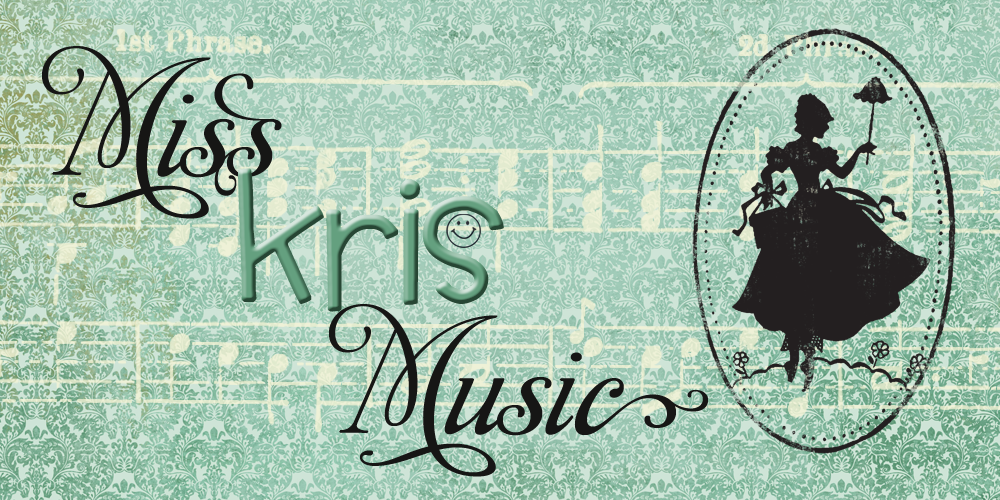Many people wouldn't believe me because I have often been told that I don't know what it's like because singing 'comes so easy' for me. When that is said, I have to silently laugh because that, also, cannot be further from the truth. I know where they're coming from but, if they only knew what I sounded like at my best fourteen years ago, they would take that statement back.
I grew up in a musical family. My dad played several instruments and sang anything he wanted because he had that kind of a range; my mother was the silent musician of the family, teaching us how to play the piano and encouraging us to practice our music everyday. All seven children took piano lessons and played a second instrument and we all could sing... except me. I felt like the black sheep of this huge, musical family. I tried playing the violin but everyone told me my playing sounded like I was killing a cat; I tried singing but I could never hear the pitches and was considered tone-deaf. So I resorted to playing the piano and clarinet--they were painless enough.
I excelled and became professional in both instruments but there was always something I struggled with: pitch. I couldn't hear it. So, when I would try to play the violin or sing, I sounded terrible. In choirs, teachers and friends would ask me to not sing so loudly because I would mess up the rest of the singers. I was even asked not to sing at times (something I think is always unacceptable to anyone). Each time I tried to sing in public, it ended in embarrassment and, sometimes, tears on my part. I remember trying to sing "The Star-Spangled Banner" with my sisters one Fourth of July. My sisters stopped mid-song from laughing at how poorly I was singing. I couldn't even sing that. One time, my sister played "Mary Had a Little Lamb" on the piano and asked me if I could sing it. I couldn't. I couldn't hear the pitches. I just wasn't made to sing, so I thought.
Through all of this, I was taking private voice lessons that I paid for as a teen just because I liked to sing. Three years into it, my teacher said, "Okay, let's try this again..." My teacher struck one of the keys and asked me to match the pitch, just as she did every week. It was G above Middle C. After a bit of wavering, I found the note... and I sang it! I remember our tears of excitement--I sang the correct note!
Even though I was declared tone-deaf, I figured out how to 'hear' the pitch through the vibrations in my face. I couldn't hear it through my ears but I figured out how to feel it. That was the first day (when I was 17 years old) I sang on pitch!
Ever since, I have never stopped singing or taking lessons. It was important to me to bring that beautiful, hidden voice out. I knew I had a beautiful voice and I wanted people to hear. I wanted to hear it! I wanted to know what I could do. Year after year, I got better. I was nothing to brag about--I was still known as the girl who always sang off-pitch. I never got accepted into any choirs or singing groups. When asked to perform a musical number, it was piano or clarinet. I majored in dance because I knew I could graduate in that successfully and that pitch would always keep me from graduating in music. I still sang and I still tried but I was never really any good.
Then I messed up my hip from pointe (BYU ballet). I could no longer dance in college or professionally. What was I to do?! My other passion was, of course, music. But I didn't want to major in Clarinet or Piano Performance. I decided, no matter how hard it would be, I would sing. I had, about, ten years of voice lessons under my belt but, considering how I sounded, it didn't seem like much. So I started over with school and I was a beginning singer at 24 years old.

The past four years have included a lot of ear training, muscle strengthening, music therapy, tears, embarrassments, sacrifices and other hardships. But, GUESS WHAT! I sing on pitch now! I can hear it and sing it! Fourteen years of music lessons and I am so grateful I refused to listen to people who told me I wasn't a singer or that tone-deafness would keep me from progressing. Instead, I held on to what I loved and what I wanted to become and worked at it.
So, please:
Don't tell you can't sing because I wont believe you;
Don't tell me that music is easy for me because it never was and
Don't expect your talent to be found and developed easily because it wont.
Instead:
Tell me that you have a beautiful voice that you will sing it out;
Tell me that you can do and why you believe it and
Tell me how you've progressed and what you want to become.
Then I will tell you:
How to make that beautiful voice come out;
Why you can do it and I believe and
How excited I am to see what you become.
For any of you who have taken lessons from me, you know that the word "can't" is not allowed nor do I allow my students to say negative things of their own voice and work. Please keep telling yourself how great you are. It's not conceited--it's realistic. Thank you for reading. :)

No comments:
Post a Comment